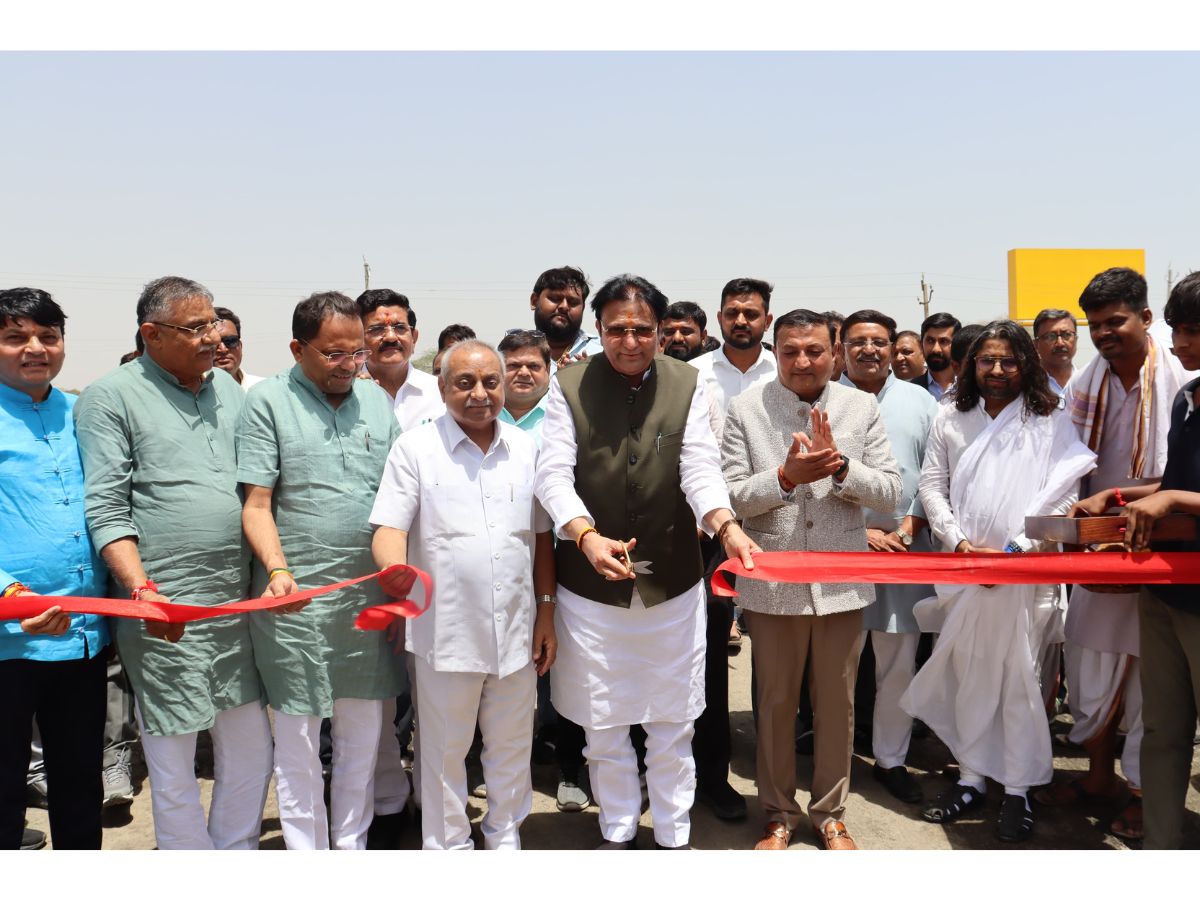'SAFE' pioneers a constructive dialogue on the environmental sustainability of materials with the launch of 'SAMVAAD'
Apr 15, 2021

New Delhi [India], April 15 (ANI/NewsVoir): India is witnessing a seismic shift in the policy landscape of materials sustainability with the government necessitating changes to tackle waste management.
As the conversation on environmental sustainability intensifies, domain experts draw underline the need to look at the subject from the prism of awareness - understanding the importance of materials (as components or as packaging) in the supply chains, and their contribution to the economy.
Initiating a national dialogue on environmental sustainability, the Science Alliance for Environment (SAFE) launched its official website and newsletter 'SAMVAAD', scientific discourse on the subject with a focus on the sustainability of materials on April 13, 2021.
SAFE brings together, a multi-disciplinary group of experts, aiming to equip policymakers, media, and the masses with authentic information about materials to create awareness about their safe disposal. From identifying research and innovation areas by tapping into all socio-economic strata, to conducting awareness workshops, seminars, panel discussions, etc. SAFE will interact with relevant decision-makers to steer meaningful dialogues through its two vehicles - SAFE's website and SAMVAAD.
The event was graced by the august presence of the Chief Guest, Dr Ashish Lele, Director, CSIR-National Chemical Laboratory, Pune, the Guest of honor, Sudhir Shrivastava, IAS, Chairman, Maharashtra Pollution Control Board, and SAFE's Advisory Board - Dr S. Sivaram, Padmashri awardee, and an INSA Senior Scientist and Honorary Professor at Indian Institute of Science Education and Research (IISER), Pune, Prof. G.D. Yadav, Padmashri awardee and Former Vice-Chancellor - Institute of Chemical Technology (ICT), Dr Y.K. Gupta, President - AIIMS, Bhopal and AIIMS Jammu, Sanchita Jindal, Former Advisor (Scientist G), Ministry of Environment, Forest, and Climate Change and Dr Vijay G. Habbu, Polymer Scientist and Adjunct Professor, Institute of Chemical Technology (ICT), Mumbai.
"Plastics played an important role during COVID-19 and it is evident from the fact that it was quite impossible to manage COVID-19 without the effective utilization of plastics. India's GDP is on the rise and it will help India to utilize advanced technologies in combating environmental pollution. There is a need to provide a scientific discourse to the policymakers in drafting policies and SAFE is the right platform that can boost the policy-making scenario in India," said Dr Ashish Lele.
On the importance of energy and material safety and security and the need to look at alternatives, Dr G.D. Yadav emphasized, "Energy and environment are interconnected. An oil-based economy for the manufacture of fuels, chemicals, and materials is not sustainable. The hydrogen economy is opportune for India because it has a great potential for boosting its energy security and alleviating greenhouse gas emissions. We are launching SAFE, a think-tank comprising an interdisciplinary group of experts to provide solutions and insights on issues that have an impact on our environment."
Emphasizing on dematerialization is key to environmental sustainability, Dr S. Sivaram said, "How do we make dematerialization, which requires that we should consume less and less, compatible with the economic goals of manufacturing which depends upon maximizing consumption? Solutions to these vexing problems will require deep-seated cultural and behavioral changes in our society, substantial rebuilding of our infrastructure, and enhance collaborations between cities, states, regions, and countries. Therefore, we need a platform like SAFE and SAMVAAD for us to talk to each other, not talk at each other."
Sharing a wider perspective on the subject, Dr Y.K. Gupta expressed his concern about the lack of awareness on waste disposal. "When we irresponsibly throw our plastic bags into dustbins and garbage piles and wonder about their impact on the environment, we must understand that the most important thing awareness about reuse of plastics. Scientifically 80 to 90 per cent of plastics can be recycled. We must collect, dispose and reuse it properly. Through SAFE and SAMVAAD, what we communicate will not be based on perception, it will be based on evidence and logic. Ultimately, it will serve the purpose of making policy decisions," he shared.
Elaborating on the role of SAFE in building the dialogues on the sustainability of materials, Dr Vijay G. Habbu, shared, "Science Alliance For Environment (SAFE) will try to develop a pragmatic roadmap to enable informed decision making and identify different areas of research and innovation. Our focus will not be confined to just the materials science but will cover other aspects such as health, judiciary, economics, policymaking, and of course an environmental aspect to be addressed by experts from our network. Accordingly, we would like to educate different stakeholders and advocate the corrective measures based on science and technology."
Sudhir Shrivastava addressed the complexities of the environmental crisis, throwing light on the different aspects of the issues that exist. "The key is to have all issues, solutions, and progress that has been made in the public domain, in an objective and dispassionate manner," he said.
Pointing out to the waste management crisis that the world is reeling under, Sanchita Jindal highlighted how resource efficiency and the circular economy concept need to be adopted more effectively. "Through SAFE, our endeavor will be to get the best solutions which are not end-of-pipe but beginning-of-pipe solutions," expressed Sanchita Jindal.
Website -
.
Newsletter -
.
This story is provided by NewsVoir. ANI will not be responsible in any way for the content of this article. (ANI/NewsVoir)




















